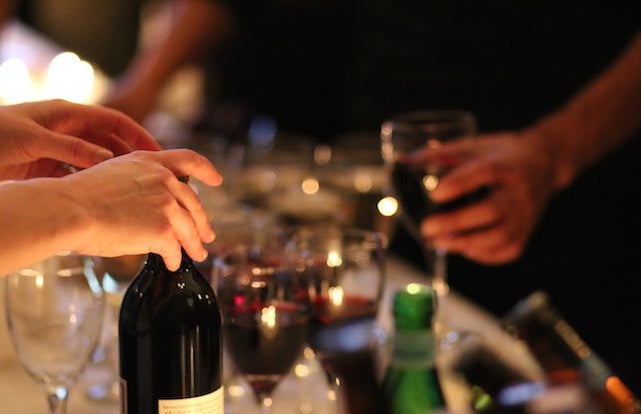In 2021, the UK witnessed a huge surge in the amount of people reporting that they had been spiked. For a lot of students, this made their nights out difficult and less enjoyable, having to constantly watch their drinks and their backs. Over a year ago, I wrote an article on how to stay safe on a night out after spiking became more of a worry. However, has anything changed since then?
A couple of weeks ago, I attended the Nottingham Nightlife Safety Forum (set up by the Nottingham Spiking Awareness Group). This group was founded by students from the University of Nottingham who feel passionate about changing the spiking crisis. Their aims are to:
- Increase advocacy: increasing advocacy on the issue of spiking and current works being carried out.
- Provide holistic solutions: providing solutions on how we as a collective can make Nottingham a safer place.
- Networking opportunities: opportunity to network with people across Nottingham and collectively tackle the ongoing issue of spiking.
At the conference, a variety of people spoke on either their experience of spiking or what they are trying to do to improve the crisis.
They began by outlining the statistics:
• In September 2021, there was a peak in the number of spiking cases.
• 16% of people out of a survey answered by 55 people said they had been spiked.
• 4% were not sure if they had been spiked.
In 2022, the National Police Chief’s Council (NPCC) shared the data of spiking reports between September 2021 and September 2022. According to the NPCC, among 800 tests carried out detected common drugs such as cocaine, ketamine and MDMA.
Here were the official stats:
• Almost 5000 spiking incidents were reported to police over the course of a year.
• The figures revealed that:
- 4,924 reports were made to the police in the 12 months to September
- 3% of cases found to “contain a controlled drug which supports a spiking incident”
- 2,581 cases of needle spiking were reported to the police
- 2,131 cases of reported drink spiking
- 212 reports of other spiking (cigarettes, food).
At the conference, Inspector Paul Gummer spoke on behalf of the police. He said that although they do have some data, a lot of it is unreliable and skewed. There are a few reasons for this, but one of the main issues is that people do not always come forward to the police when they believe they have been a victim of spiking. Unfortunately, a lot of people are too scared to come forward as it is a very vulnerable thing to do. This is understandable, but the police urge people to come in as it may help the spiking crisis, as they will have more reliable data. Not only does it improve data reliability, but if you have been spiked, it is important to get treated/ looked at by a doctor (especially if the spiking was done via a needle).
WHAT HAS IMPROVED SINCE 2021?
After attending the Nottingham Nightlife Safety Forum, these are the main points that I picked up:
• The police have received funding for urine kits that can test samples within 72 hours of the incident.
• Staff training made compulsory in some bars for dealing with spiking issues.
• 0% tolerance policies in bars for violent or suspicious behaviour.
• “Ask for Angela”: In many toilets in bars/clubs/pubs it is signposted that you can ‘Ask for Angela’ at the bar to a member of staff if you feel any kind of danger/discomfort with an individual.
• Anti-spiking kits in some bars which include UV lights, water bottles and blankets.
• Increased radio and CCTV monitors.
• Security caps for drinks/ foil tops. You can find these at https://www.stoptopps.com/
WHAT STILL NEEDS TO IMPROVE?
Whilst some improvements have been made, there is still a long way to go. At the Nottingham Nightlife Safety Forum, we discussed what would be best moving forward. Here is what we came up with:
• Ensure adequate training of security regarding the safeguarding of vulnerable people.
• Implement a mandatory welfare course as part of a security guards official training that must be updated regularly.
• Ensure that venues take accountability for the staff they hire rather than hiring them from external companies.
• Implement a welfare/safe room in club/bar venues for vulnerable people.
• Ensure anti-spiking equipment is made visible for customers as well as ensuring staff are offering these items.
• Potentially hire a welfare officer specifically for the purpose of looking after vulnerable people in a club/bar.
Hopefully with passionate individuals such as the Nottingham Spiking Awareness Group, alongside the police and other welfare companies, Nottingham (and the UK) can become a safer place to live (and have fun!).


